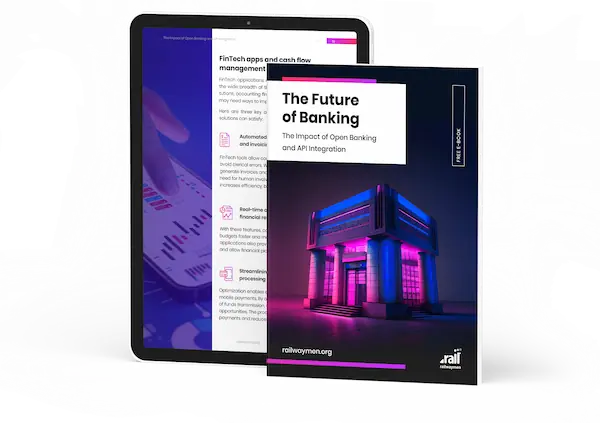Blockchain technology, also known as the blockchain ecosystem, has taken our daily reality by storm. Its role is to transfer and store information about online transactions. Companies are leveraging blockchain to build decentralized networks that enhance transparency, security, and efficiency in their operations. The collected data is presented in the form of blocks arranged in a suitable form. Each block holds information on a certain number of such transactions. When data saturation occurs, another block of data is created.
In this article, I will explore the best practices and examples of blockchain implementation, including popular platforms, blockchain solutions, smart contracts, consensus protocols, and the vital role of blockchain developers.
Table of Contents:
1. Understanding Blockchain Solutions: How can it Revolutionize Your Business?
2. How to implement blockchain technology?
3. The best ways to bring a blockchain solution to your business.
3.1. Useful tips, while using blockchain technology.
4. Real-World Examples of Blockchain Implementation in Various Industries.
4.3. Blockchain-based smart contracts.
4.4. Blockchain-based identity management.
5. Unlocking the Potential of FinTech through Blockchain Integration.
6. Blockchain apps from Railwaymen.
Understanding Blockchain Solutions: How can it Revolutionize Your Business?
As you already know, the role of blockchain is to securely and transparently maintain a record of data without the need for assistance from intermediaries. Blockchain solutions are characterized by unique features, which can be divided into decentralization, immutability and transparency. All this is done to make business transactions as efficient as possible for users.
Blockchain solutions can also be divided into public, private and hybrid. A public blockchain allows anyone to become a node, meaning that users have read, write and modify permissions. A private blockchain is a solution that centralizes block write and modification privileges with public or limited read capabilities. The hybrid version of the blockchain, on the other hand, is a combination of features of the public blockchain and the private blockchain. The hybrid model is the most responsive to user needs, as it gathers the necessary features for users available in the other solutions.

How to implement blockchain technology?
Before you start thinking about blockchain development in your enterprise, first prepare a proper blockchain implementation plan. This will allow you to systematize your work and at the same time avoid possible complications due to lack of proper preparation. Blockchain implementation can be done in two ways: internal and external. The first involves putting the solution into practice through your internal team of specialists. The second, on the other hand, is based on undertaking cooperation with external blockchain experts specializing in complex processes.
Both solutions have their good and bad points. In the case of an in-house team, you have to expect a higher cost, as well as spending a lot of time to assemble the right team. On the other hand, in the case of outsourcing, there are other concerns, such as a lower level of security or less accuracy due to the large number of blockchain projects. Therefore, before you get down to this innovative business project, consider what features are a priority for you.

The best ways to bring a blockchain solution to your business
Implementing a blockchain solution should start with preparing the necessary project specifications. Present the blockchain developers with all your expectations from the business project. Based on the initial smart contract interview, the developers will select the right blockchain solutions for your business. This is also the right moment to determine the timeline associated with the blockchain solution implementation, as well as to specify what budget you have at your disposal.
After proper consultation, analysis and financial calculations, you can make an informed choice about what you want your own blockchain platform to look like. Remember that adopting blockchain technologies involves shaping the future, so it's not cheap either. Don't be tempted by a low price when choosing blockchain experts, as you may be disappointed by the quality of their implementation.
It is essential to follow best practices like collaboration and communication among stakeholders. Thorough testing and pre-launch debugging can also be an added advantage. As you may have guessed, a scalable and sustainable blockchain network requires a well-designed architecture and security protocols that take the entire process to the highest possible level.

When using blockchain technology, keep the following useful tips in mind:
-
Define your use case - this entails figuring out the precise business issue that blockchain technology can resolve, such as enhancing supply chain management transparency or accelerating financial transactions.
-
Choose the relevant blockchain platform - in order to accomplish this, you must choose a platform that satisfies your unique needs, such as scalability, security, and privacy. Ethereum, Hyperledger Fabric, and Corda are just a few of the widely used blockchain platforms.
-
Develop smart contracts - due to their ability to automate transactions and execute them in a secure and transparent manner, smart contracts are a crucial part of blockchain technology.
-
Choose the right consensus protocol - the consensus protocol is the mechanism that validates blockchain transactions, ensuring that they are secure and tamper-proof. There are several consensus protocols available, such as proof of work, proof of stake, and byzantine fault tolerance (BFT).
Integrate blockchain technology with existing systems - it's a complex process that necessitates meticulous planning and execution. Integrating blockchain technology with existing systems ensures that data flows seamlessly, and that systems are interoperable. It also necessitates API integration expertise as well as knowledge of the relevant blockchain protocol and technologies.
Real-World Examples of Blockchain Implementation in Various Industries
There are many examples of successful blockchain applications and implementations across a wide range of industries. One of the blockchain implementation examples is JPMorgan which implemented its Quorum blockchain platform for interbank payments and securities settlement in the financial sector. In contrast, Walmart used blockchain technology to track the origin of its products and ensure food safety. Furthermore, the Estonian government implemented a blockchain-based national identity system to protect citizen data and streamline administrative processes. These examples demonstrate blockchain technology's versatility and potential for a variety of use cases, as well as its ability to improve efficiency, transparency, and security.
Blockchain technology implementation is not limited to a particular industry or application. Here are some examples of blockchain implementation across various sectors:
Enterprise blockchain:
Enterprise blockchain solutions are intended to help businesses manage their operations and transactions in a secure and transparent manner. IBM's Hyperledger Fabric, an open-source blockchain platform that supports smart contracts and consensus protocols, is one such example.
Private blockchain:
Private blockchains are created for a specific organization, with nodes controlled by a central authority. The Corda blockchain, for example, is intended for use in financial services and allows for secure and private transactions.
Blockchain-based smart contracts:
Smart contracts enable businesses to automate and execute transactions without the use of intermediaries. Popular blockchain platform Ethereum encourages the creation of smart contracts.
Blockchain-based identity management:
Blockchain-based identity management solutions enable secure and decentralized identity verification. Civic is a blockchain-based identity management software that uses blockchain technology to validate users' identities.

Unlocking the Potential of FinTech through Blockchain Integration
The FinTech sector was an early adopter of blockchain technology. Blockchain technology implementation in FinTech has enabled secure and transparent transactions with lower transaction costs. It has been used to create payment gateway solutions that allow businesses to send and receive payments globally without the need for a central authority. Smart contracts implemented in blockchain are also being developed to help automate financial transactions like insurance claims and cross-border payments while maintaining regulatory compliance.
What's more, blockchain technology has been integrated with identity management software in order to secure user identities and prevent fraud. Blockchain technology integration in FinTech is expected to grow in the coming years as more businesses realize its potential for cost reduction, increased efficiency, and improved security.
Blockchain apps from Railwaymen
As you probably already know, Railwaymen has in its portfolio applications with different business profiles. We are also experienced with the latest solutions such as blockchain technologies. Our functional applications respond to the current needs of our customers. And here are some examples of them.
CreateCoin
CreateCoin is the world's first Blockchain-based solution. The platform is built on a gamification model that is driven by user feedback. This allows app users to be the gatekeepers of innovative business ideas. The most engaged users receive rewards in the form of cryptocurrencies. Since CreateCoin is integrated with the BlockCypher API, distributing cryptocurrencies as rewards is simple, especially in terms of security.
.png?width=1200&height=847&name=final-CreateCoin%20(1).png)
NDA Project
Due to a signed confidentiality agreement, we cannot reveal the identity of our client and the name of the project. Nevertheless, it concerned the development of a business platform to efficiently solve courses on the topics of cryptocurrencies, blockchain and new technologies related to finance. The application gathered a public blockchain community of enthusiasts willing to expand their knowledge and exchange their experiences in dealing with this technology.
For a detailed description of blockchain applications development, as well as many other solutions developed by Railwaymen, I refer you to the Case Studies section of the company's website. There you will find step-by-step descriptions of our activities related to the creation of the application.
It's time to explore the future of banking
Are you interested in the future of banking and how it will affect your business? Our e-book "The Future of Banking: The Impact of Open Banking and API Integration" provides a detailed analysis of these changes. With thought-provoking insights and expert analysis, you will be able to prepare for the challenges and opportunities ahead.
DOWNLOAD NOW


%20(1).jpg)



